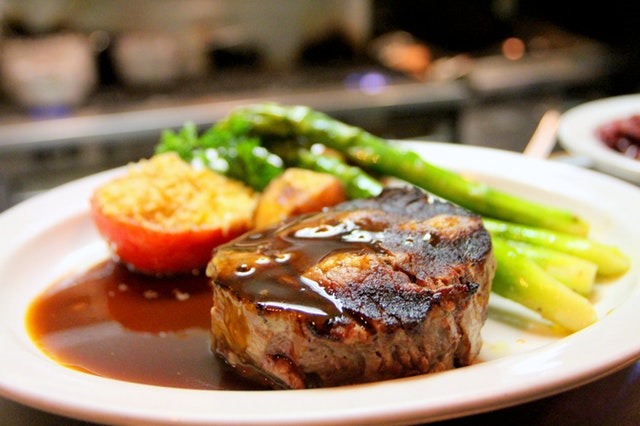Are there steps you could take to decrease your risk of colorectal cancer and colorectal cancer recurrence? There sure are and in terms of cancers, colorectal cancer is one of the most researched. Continue to read this blog and I’ll provide you with what you can do to help lower your risk. The research is strong, so by implementing some changes, you can make a big difference in your health.
There’s more good news! Making some small dietary tweaks will not only helpful to prevent colon cancer (and recurrence) but will also help lower your risk for other cancers and chronic diseases and conditions.
Let’s start off by understanding the difference between red and processed meats. Hands down, one of the best marketing campaigns ever is “Pork the Other White Meat.” Most people believe this to be true, however, pork, along with beef and lamb, is a red meat. A processed meat has been salted, cured, fermented, smoked or has undergone another process to enhance flavor or improve preservation.
Even though red meat and processed meats are typically grouped together, there are different recommendations put forth for them. With regards to cancer, it is important to limit red meat consumption because too much can potentially damage the lining of the colon. Also, certain methods of cooking can produce carcinogens (cancer promoters). *See my blog on grilling for more information.
The recommendation from AICR is to limit red meat consumption to no more than18 oz. cooked per week. Just for a frame of reference, a 3 oz. cooked portion of meat is about the size of a deck of cards. I think this is a very doable recommendation and you’ll probably even fall short of that 18 oz. Unlike red meat, where there is an established threshold not to go above, it’s recommended to avoid processed meats altogether because even small amounts raise your risk for colorectal (and other) cancer. Both red and non-red meats can be processed and some of the cancer-causing mechanisms for processed meats are similar to that of red meat, but also, the “processing process” in and of itself, produces carcinogens.
What are Examples of processed meats:
- Hotdogs
- Ham
- Pastrami
- Pepperoni
- Bacon
- Sausage
- Bologna
- Jerky meats
To lower your risk of colorectal cancer:
- Decrease red and processed meats.
- Be as lean possible without being underweight.
- Increase amount of fruits and vegetables in your diet.
- Use high fiber foods to replace read and processed meats.
- Eat whole grains instead of processed grains.
- Significantly decrease or eliminate alcohol.
Ideas to start the process:
- Initiate meatless Mondays on more than just Mondays.
- Grill vegetables and fruits (plant foods don’t produce carcinogens from cooking.
- Order fish or opt for fresh turkey or chicken in a restaurant.
- Be open to trying some protein alternatives such as tofu, nuts, nut butters, beans, lentils or eggs.
My thoughts:
Everything comes back to a long-term daily eating pattern. Should you never have a hotdog at a baseball game or a delicious tasty pastrami on rye at a family gathering? No! It’s important to enjoy life and enjoy food. Indulge once in a while, but very sparingly with processed meats. If you have baseball season tickets, don’t have a hotdog at each game and, if you decide to indulge, skip the ice-cream!
Side thought:
Wendy Kaplan, MS, RDN, CSO, CDCES, CDN is a registered nutritionist specializing in oncology and weight management in Long Island and in the New York City area. Connect with Wendy on Facebook, Instagram and Twitter and read more of her blog posts and download recipes at Food4HealthRD.comof her blog posts and download recipes at Food4HealthRD.com


0 Comments